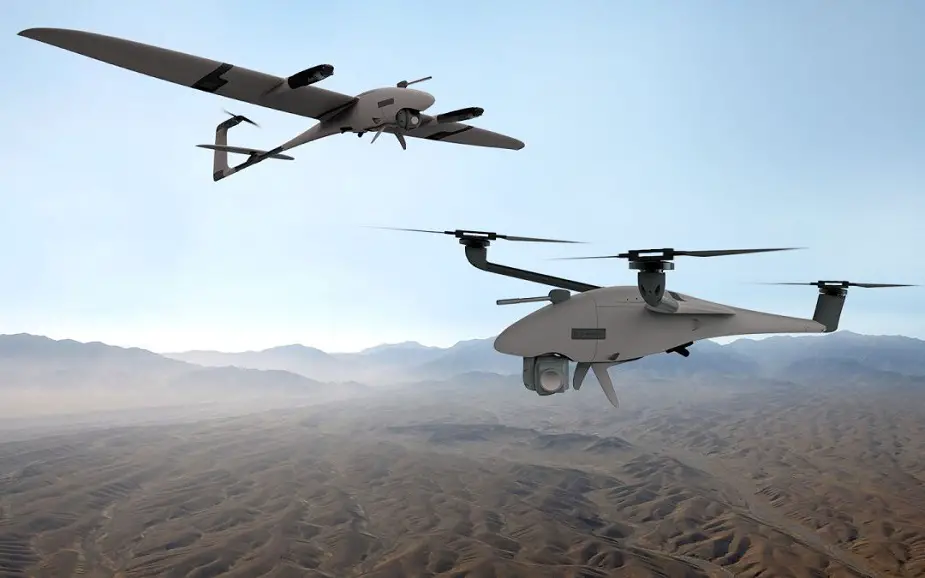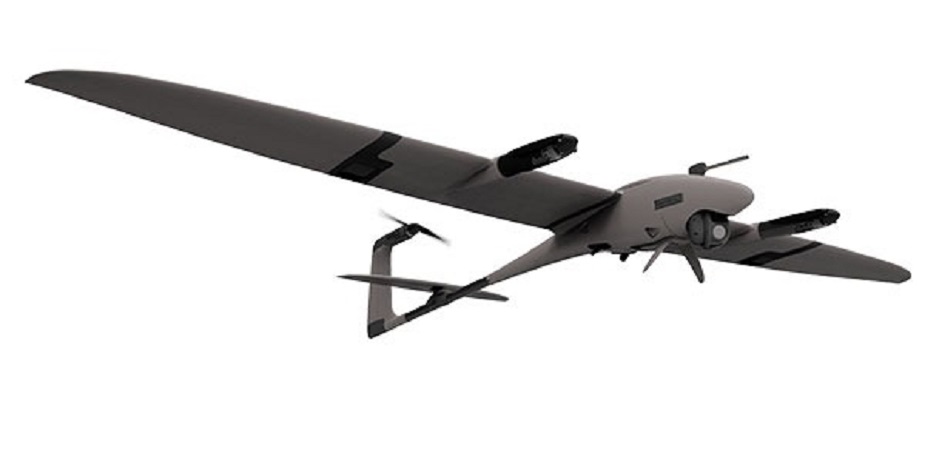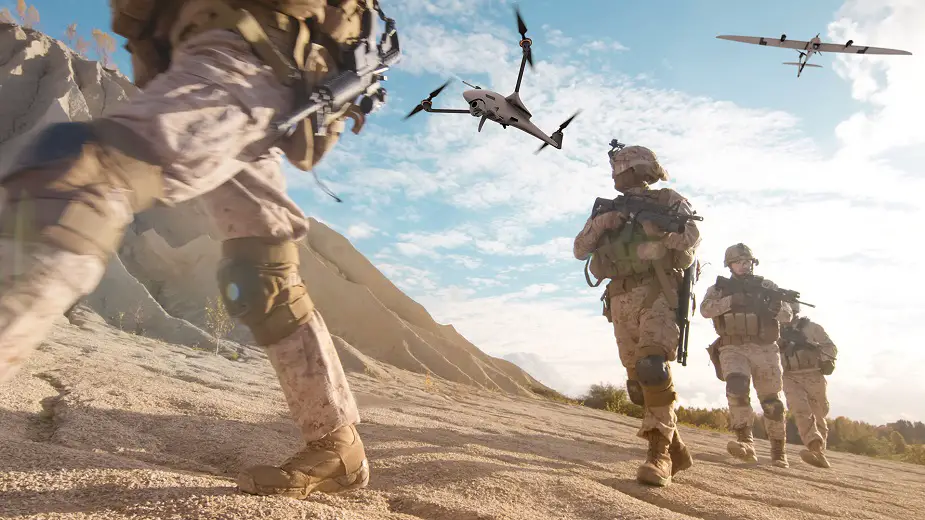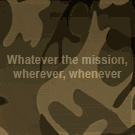Within the framework of the forum “Unmanned Systems” of the Studiengesellschaft DWT, Quantum-Systems GmbH and ESG present with Vector and Scorpion real world novelties in the field of electrically operated, unmanned systems for tactical deployment scenarios.
 Vector and Scorpion UAS (Picture source: Quantum-Systems)
Vector and Scorpion UAS (Picture source: Quantum-Systems)
The Vector combines the performance advantages of a fixed-wing aircraft with the vertical take-off capability of a helicopter. In just a few simple steps, you can switch to the Scorpion configuration and use the benefits of a sophisticated tri-copter setup thanks to the 2in1 system.
This allows a fast and highly flexible response to different challenges of changing deployment scenarios. Due to their design, Vector and Scorpion are ideal for tactical reconnaissance and surveillance missions even in demanding weather conditions.
Both systems share the following specifications:
- 15+ km command & control range
- Electric Vertical Take-off and Landing (eVTOL)
- EO/IR HD Gimbal option
- Made for harsh environmental conditions (-20 up to 45+°C)
- Heated batteries for operation in cold temperatures
- AES 256-bit encrypted data and mission link
- Small footprint (operation by one person)
- Glass fiber and Kevlar honeycomb sandwich airframe
 Vector (Picture source: Quantum-Systems)
Vector (Picture source: Quantum-Systems)
VECTOR eVTOL FIXED WING
The mathematical definition of a vector fits very well for the latest UAV from Quantum-Systems. It can point into any direction: upward, forward or down. That’s exactly what the latest UAV from Quantum-Systems is capable to do. Vertical take-off. Energy efficient long range fixed wing flight and back to a vertical landing. All automatic no pilot or operator input needed. Just fly.
“VECTOR – The 2in1 vertical take-off reconnaissance UAV”
Flexible and enduring, the Vector provides flight and surveillance characteristics to military and security forces that are exceeding performance of current tactical UAV platforms in service all over the world. It is a military grade UAV System built to last and bring capabilities to the battlefield not available as of today.
A military encrypted mesh IP link sends video streams up to 15+ km range. A flight time of up to 120 minutes speaks for itself. All combined in a compact and robust electric VTOL UAV.
- Vertical take-off fixed-wing UAV
- 15-25m/s flight speed
- Up to 120 min flight time
The 2in1 System design opens up further applications with the “Scorpion” configuration – By removing the wings and attaching a separate set of copter arms a dedicated multi copter platform becomes available for an even wider variety of mission applications.
Either use a VTOL fixed-wing or a conventional copter – in both cases you only need one system to train on and to deploy it on site.
 Scorpion (Picture source: Quantum-Systems )
Scorpion (Picture source: Quantum-Systems )
SCORPION TRI-COPTER
It is not only the optics that the Scorpion has in common with its animal fellow. Like the Vector it is also optimized for use in adverse conditions with extreme temperatures. The centerpiece is identical to the fixed-wing Vector UAV housing gimbal, autopilot and data link. The larger propellers and motors of the Scorpion make it a state-of-the-art tri-copter with live video data link for various mission scenarios.
The Scorpion impresses with an HD data link of up to 15+ km range. As a tri-copter it is ideal for smaller-scale and stationary use, for example in densely built-up areas. With a flight time of up to 45 minutes, it can cover a wide range of applications.
Coming with the built in 2in1 ability to always convert back to the Vector UAV the Scorpion’s core features are:
- Tri-Copter UAV
- 0-15 m/s flight speed
- Up to 45 min flight time
 Due to their design, Vector and Scorpion are ideal for tactical reconnaissance and surveillance missions even in demanding weather conditions (Picture source: Quantum-Systems)
Due to their design, Vector and Scorpion are ideal for tactical reconnaissance and surveillance missions even in demanding weather conditions (Picture source: Quantum-Systems)
















